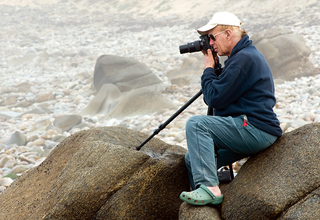A Quote by Urie Bronfenbrenner
If the Russians have gone too far in subjecting the child and his peer group to conformity to a single set of values imposed by the adult society, perhaps we have reached the point of diminishing returns in allowing excessive autonomy and in failing to utilize the constructive potential of the peer group in developing social responsibility and consideration for others.
Quote Topics
Adult
Allowing
Autonomy
Child
Conformity
Consideration
Consideration For Others
Constructive
Developing
Diminishing
Diminishing Returns
Excessive
Failing
Far
Gone
Group
His
Imposed
Others
Peer
Peer Group
Perhaps
Point
Potential
Reached
Responsibility
Returns
Russians
Set
Single
Social
Social Responsibility
Society
Too
Utilize
Values
Related Quotes
A new world of complex relationships and feelings opens up when the peer group takes its place alongside the family as the emotional focus of the child's life. Early peer relationships contribute significantly to the child's ability to participate in a group (and in that sense, society), deal with competition and disappointment, enjoy the intimacy of friendships, and intuitively understand social relationships as they play out at school, in the neighborhood, and later in the workplace and adult family.
Your peer group are people with similar dreams, goals and worldviews. They are people who will push you in exchange for being pushed, who will raise the bar and tell you the truth. They're not in your business, but they're in your shoes. Finding a peer group and working with them, intentionally and on a regular schedule, might be the single biggest boost your career can experience.
The culture in which you parent, mentor, or educate boys exhorts them to be individualistic and group-oriented at once, but does not give them a tribal structure in which to accomplish both in balance. It used to be that the tribe formed a boy's character while the peer group existed primarily to test and befriend that character. Nowadays, boys' characters are often formed in the peer group. Mentors and intimate role models rarely exist to show the growing boy in any long-term and consistent way how both to serve a group and flourish as an independent self.
One reason patients are reluctant to work in a therapy group is they fear that things will go too far, that the powerful therapist or the collective group might coerce them to lose control--to say or think or feel things that will be catastrophic. The therapist can make the group feel safer by allowing each patient to set his or her limits and by emphasizing the patient's control over every interaction.
Belonging to a group can provide the child with a variety of resources that an individual friendship often cannot--a sense of collective participation, experience with organizational roles, and group support in the enterprise of growing up. Groups also pose for the child some of the most acute problems of social life--of inclusion and exclusion, conformity and independence.
Bitcoin is a peer-to-peer, decentralized form of money, as durable as the Internet itself. Remember, the Internet - or DARPA, as it was originally called - was created as a fail-safe, global network with no 'single point of failure.' If one part goes down, data takes another route, and nothing is lost.






































